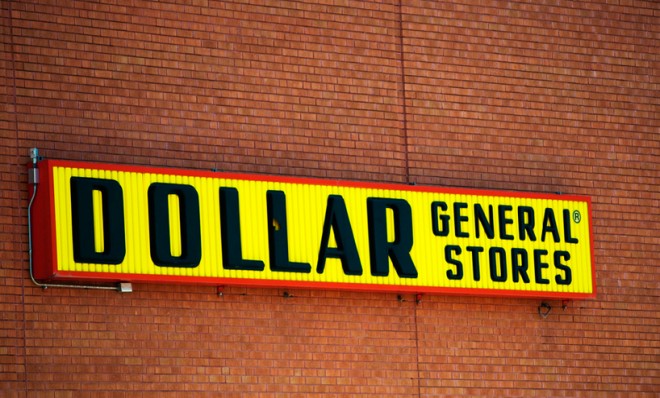America's dollar store revolution
Neighborhood retail outlets boasting bargain-basement prices on off-brand goods are booming... mostly because the broader economy isn't

A free daily email with the biggest news stories of the day – and the best features from TheWeek.com
You are now subscribed
Your newsletter sign-up was successful
Lately, it often seems like dollar stores are sprouting like weeds on every corner. Indeed, these shops stocked with inexpensive necessities and off-brands are rapidly populating the U.S. retail landscape.
The dollar store retail segment is largely dominated by three publicly traded retailers: Dollar General, Dollar Tree, and Family Dollar. (99 Cents Only was purchased by a private equity firm in October 2011). From an investor standpoint, this sector is growing faster than just about any other retail category.
So why are dollar stores taking over? A middling economy, sluggish recovery, and prolonged unemployment have squeezed middle-class budgets. Families are looking for new ways to stretch a dollar — which is the whole point of dollar stores. Some, like Dollar Tree, actually price most items at $1. Others, like Family Dollar and Dollar General, have greater range, but still offer better prices than most discount retail stores, including Walmart.
The Week
Escape your echo chamber. Get the facts behind the news, plus analysis from multiple perspectives.

Sign up for The Week's Free Newsletters
From our morning news briefing to a weekly Good News Newsletter, get the best of The Week delivered directly to your inbox.
From our morning news briefing to a weekly Good News Newsletter, get the best of The Week delivered directly to your inbox.
Many years ago, at a retail conference I attended, executives from one such retailer showed a video meant to provide insight into who the chain served. There were snapshots of market research groups and shopper testimonies that were eye opening. These execs spoke of how difficult it was to feed a family on $20 a week and the many ways in which dollar stores helped provide for such families' children. One woman talked of buying seeds and planting a vegetable garden that yielded produce for many months to come.
The core dollar store shopper typically has a household income of less than $40,000 a year, in some cases much less. Family Dollar reports a shopper base making an average of $12,000 a year, and Dollar General talks about customers making as little as $7,000 annually. These shoppers are both urban and rural, largely female, and often older.
Some dollar store shoppers are casual customers, popping in for inexpensive gift wrap or holiday decorations. But most core customers shop at the dollar store for groceries and other necessities, too.
In the mid-2000s, dollar stores began adding food items beyond the shelf staple variety. Today, more stores sell perishable items, refrigerated goods, and frozen foods. As a result, some grocery and discount stores are running scared. Target and Walmart both feature a revolving selection of items for $1, and are looking to new formats for growth. Many have a striking similarity to dollar stores. Drugstores and supermarkets are expanding private label assortments, much like that of dollar stores.
A free daily email with the biggest news stories of the day – and the best features from TheWeek.com
But dollar stores just keep opening. Dollar General operates close to 11,000 stores. Dollar Tree is nearing 7,000, and Family Dollar plans to add nearly 500 new locations to its 7,800 store base in the remainder of this year alone.
In some neighborhoods, outlets can be found every few blocks. I entered a Chicago zip code in Family Dollar's store locator and the search returned 122 locations. Dollar stores are filling in food deserts where national supermarkets and discounters rarely dare to go, and the smaller format makes urban development far easier for a Dollar Tree than a Target or Kroger. And while retailers such as Walmart and Walgreens are developing formats and making pledges to serve these communities, dollar stores are actually doing it, both quietly and profitably.
These are the five and dimes of today, the neighborhood market, small grocer, or convenience store. They are everywhere, and more are coming.